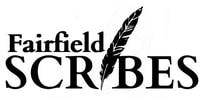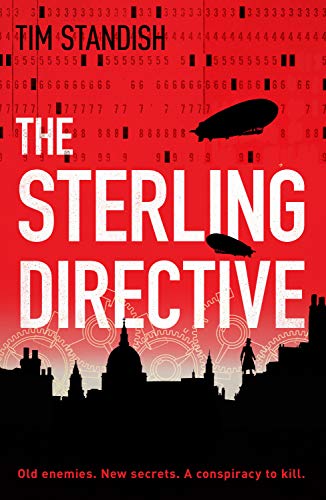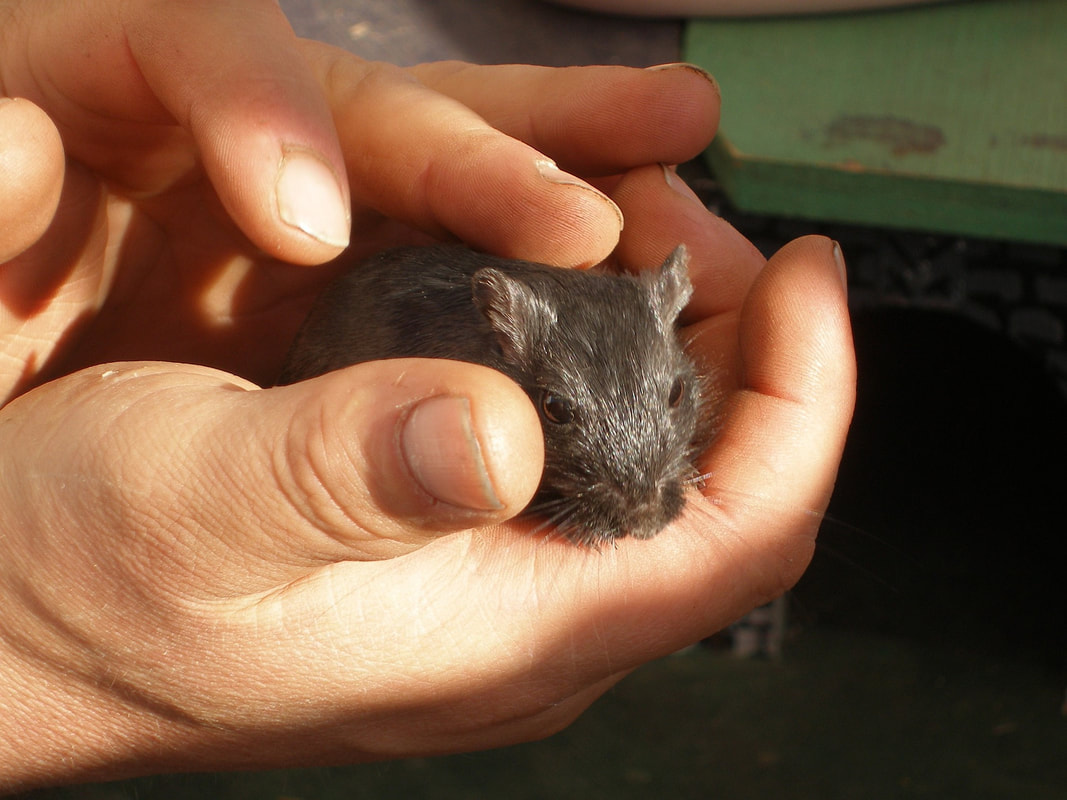ScribesMICRO
* * * Managing Editor: Edward Ahern * * *
* Associate Editor: Alison McBain *
* Submissions Editor: Sarah Anderson * Submissions Editor: P.C. Keeler *
* Submissions Editor: P.M. Ray * Submissions Editor: Ira Rosofsky *
* Submissions Editor: Felicia Strangeways *
* Featured Contributor: Matthew P.S. Salinas *
* Associate Editor: Alison McBain *
* Submissions Editor: Sarah Anderson * Submissions Editor: P.C. Keeler *
* Submissions Editor: P.M. Ray * Submissions Editor: Ira Rosofsky *
* Submissions Editor: Felicia Strangeways *
* Featured Contributor: Matthew P.S. Salinas *
Issue # 20
August 17, 2022
Featuring the short scribblings of:
* Jim Anderson * Renny Barrett * Jason P. Burnham *
* Samantha Carr * Joseph Dunnigan * Darlene Eliot *
* Priscilla Goins * John Grey * Karin Hedetniemi *
* David Henson * Joyce Jacobo * Chiyeung Lau *
* Matthew P.S. Salinas * John Sheirer * Cheryl Snell *
* Phillip Temples * Hannah Trico * K. J. Watson *
* Jim Anderson * Renny Barrett * Jason P. Burnham *
* Samantha Carr * Joseph Dunnigan * Darlene Eliot *
* Priscilla Goins * John Grey * Karin Hedetniemi *
* David Henson * Joyce Jacobo * Chiyeung Lau *
* Matthew P.S. Salinas * John Sheirer * Cheryl Snell *
* Phillip Temples * Hannah Trico * K. J. Watson *
Featured Author & Book Review
Interview with Tim Standish &
Review of The Sterling Directive
Reviewed by Matthew P.S. Salinas
Welcome to our twentieth issue of ScribesMICRO. I’m the Special Features Editor/featured contributor Matthew P.S. Salinas, and our interview today is with Tim Standish.
Mr. Standish grew up in England, Scotland, and Egypt. Following a degree in psychology, and stints as a teacher and researcher, Tim now works in change management. When not working or writing, he enjoys playing overly complicated board games and wandering across fields in search of lesser-known monoliths.
Mr. Standish grew up in England, Scotland, and Egypt. Following a degree in psychology, and stints as a teacher and researcher, Tim now works in change management. When not working or writing, he enjoys playing overly complicated board games and wandering across fields in search of lesser-known monoliths.
|
Mr. Standish, thanks for chatting with me today. Where did the inspiration for The Sterling Directive come from? The overall idea came from a combination of the types of books I enjoy reading myself, especially historical fiction and thrillers, and then discovering cyberpunk, and later steampunk, through authors such as William Gibson and Alan Moore. And I have always liked the idea of alternative timelines—I’d like to say that this comes from extensive study of academic counterfactuals, but it’s more the result of reading “Future Shocks” in the comic 2000 AD as a teenager.
When writing, what would you consider to be your creative process? Are you more of an “outline and organize first” or “plot as you go” author? More the former. I start with an overall shape, and some key scenes or moments along the way. I knew that The Sterling Directive would be about a Victorian spy working for a shady espionage outfit to unravel a government conspiracy, and would involve a duel, a panopticon prison, a fight on a train, and so forth. I wrote chapter summaries that included key events and stuck to those. Details changed sometimes, through beta reader feedback or chance online discoveries (Stirn waistcoat camera!). Also Patience’s character developed in a way I hadn’t intended… but for the better, I think. For readers who enjoy The Sterling Directive, where else can they find more of your work? I am in the middle of writing the next Sterling book in what will be a series of six about him and the rest of Milady’s team at the Map Room. I am researching quite a bit for this one, which takes place two years after the events of The Sterling Directive, and is set in an alternative America where a certain George Armstrong Custer is President. I am hoping to finish that later this year and publish it next year. I don’t have a mailing list yet but do keep an eye out on Twitter. |
For this month's issue, I had the pleasure of reviewing Tim Standish's The Sterling Directive. Taking place in a dystopian world with an alternate timeline, this spy/thriller story packs a lot of action and unique characters. The main character, Agent Sterling, finds himself caught up in a major conspiracy. It leads to unlikely partnerships and doing what he can to survive while finding the truth. I would highly recommend this book to anyone who enjoys historical fiction and well-developed characters. Beginning with a duel, the novel immediately works on drawing readers in with the intrigue and the mystery of the enigmatic titular character. Charles Arthur Maddox (aka Agent Sterling) quickly finds his visit back to London plagued with one sticky situation after another. The overall steampunk vibes help portray this timeline’s London scenery in a fascinating light. I don’t want to give too much away, but the narrative has numerous twists and turns that do a great job of telling a captivating story. The main character makes me think of James Bond from Sir Ian Fleming’s novels. Calm, collected, and able to handle himself in numerous situations, the protagonist emulates the “cool spy” persona and still brings something new to the table. As a matter of fact, none of the characters come across as two-dimensional, and the development of each is treated with an intricate level of detail. From valiant opponents who fight in duels to government officials, to unexpected allies and unexpected foes, Agent Sterling finds himself faced with solving a growing conspiracy and the imminent threat of death, but he refuses to give up. The whirlwind of action is attention-grabbing from page one until the end. The ending leaves the reader ready for a sequel, and I personally hope there is one. I would love to see Agent Sterling back in action, solving another case and learning more about his enigmatic past. Come and read this exciting spy thriller. I promise it won’t disappoint you. |
Fiction
|
Click Clack by Matthew P.S. Salinas It was roughly the size of a shoebox, and that was more than enough. It held the power to simultaneously breathe life into the craziest flights of fancy a person could dream of or destroy everything in one bad day.
George had never felt so alive. Sitting there behind the typewriter he had found buried beneath rubbish in the attic. The world was suddenly pressed under his fingers as he orchestrated every single moment that came next. The exhilaration he experienced from those keys would be a sensation that was never paralleled. George dreamed, click clack, and it became reality. * * * Matthew P.S. Salinas is an author from Illinois who writes short stories in all genres and poetry. He has two published works and is continuing to publish two more books by the end of the year. He lives with his wife Jordana and their two cats.
Deep Stacks by Hannah Trico The neighborhood library’s book perfume intoxicated Paula with alternating stale and crisp notes. She perused historical fiction and espionage tales, equally delighted with psycho thrillers of the week.
A familiar-looking pair of purple reading glasses on a silver chain, belonging to her neighbor Mary, sat abandoned on a sci-fi shelf. Paula looked around to find her in a chair loaded down with a pile of vampire books. “How are you reading about those charismatic creatures without these?” Paula asked. “My eyesight’s getting better. Don’t need them,” she said. “Bloodlust themes.” Mary’s pointy teeth gleamed up at Paula through crimson lips. * * * Hannah Trico’s fiction has been featured in The Potato Soup Journal, Crow Name, and The Writer’s Center. You can find her on Twitter @TricoLitProse. She currently works as a social scientist in the Washington, DC area and is a member of the Maryland Writer’s Association and The Writer’s Center.
Earworm by Phillip Temples Zara knew the moment she heard Europe’s “Final Countdown” on the 80s station that it would get stuck in her head. These irritations were happening more frequently. Zara wondered if that meant that she was getting Alzheimer’s or going crazy, but she did some research and discovered that it wasn’t unusual for people to experience the so-called “earworms” for hours, days--even weeks on end.
Zara decided if she was going to get stuck with a song or a decade, 70s music would be preferable. She searched the radio for AC/DC’s “Highway to Hell” and surrendered to her inevitable fate. * * * Phillip Temples resides in Watertown, Massachusetts. He's had five mystery-thriller novels, a novella, and two short story anthologies published in addition to over 150 short stories. Phil is a member of New England Science Fiction Association, the Mystery Writers of America and the Bagel Bards. You can learn more about him at https://temples.com.
A Man Awakens at Dawn, Steps Out of Bed, and Rises to the Ceiling by David Henson He forces himself back to the floor and showers with no further problems. But at work, he develops an embarrassing spring in his step. Then he’s riding upstairs with the boss, and when the elevator stops, he doesn’t, but instead drifts up like a balloon. As his boss runs to call the authorities, he frantically pulls himself out of the lift, bobs across the ceiling, and somersaults through an open window. The officers find him in the park—clinging to a treetop—dangling upward, a clear target stretching toward the sun.
* * * Story originally published in Asylum Magazine (1993).
David Henson and his wife have lived in Brussels and Hong Kong and now reside in Illinois, USA. His work has been nominated for two Pushcart prizes and has appeared in ScribesMICRO and other journals.
Moose and Blinky by John Sheirer The two men met as they had most afternoons for a decade. Their leashed dogs exchanged happy sidewalk butt-sniffs.
“Moose eating better?” the first man asked. “Yep. New limited-ingredient food,” the second replied. “Does Blinkers need surgery?” “Hip healed up,” the first man said. “Underwater treadmill therapy. Like a miracle.” “Great!” “Thanks!” The men watched their dogs as birds chirped through a wordless minute. “Hey,” the second man said. “I apologize, but I don’t know your name.” “Will,” Will said. “Carl,” Carl said. Their faces smiled at each other. Several elongated seconds ticked by. “Okay, bye Blinky!” “See ya, Moose!” * * * John Sheirer is a writer and teacher from Massachusetts. His most recent book is Stumbling Through Adulthood: Linked Stories. Find him at JohnSheirer.com.
The Last Dog Walk by K. J. Watson During a stroll through woodland, Patricia’s dog broke free from his lead and chased a squirrel up a tree.
“Come down, Apricot,” Patricia called, although she marveled at her pet’s ascent. Apricot ignored her. Keen to prevent a squirrel’s death, Patricia followed her dog. The squirrel leapt to an adjacent oak. Apricot barked, sprouted wings, and flew off in pursuit. Astonished, Patricia paused and straddled a branch. She felt a prickling sensation and realized she had developed fur and a tail. Spotting his owner’s metamorphosis, Apricot grinned. He turned in mid-flight and dived. Patricia failed to scamper away in time. * * * K. J. Watson’s fiction has appeared on the radio; in comics, magazines, and anthologies; and online.
Mother by Chiyeung Lau You weren’t supposed to have a name. But you didn’t drown. So she carried you on her back and brought you to a neighboring village. Bundled in a red blanket, you were placed in the arms of a woman who had prayed to Guanyin every day for a child.
When you are rescued and brought home by your brother, she pretends as if you had never left. She cradles you and names you after her favorite flower. “山茶,” she whispers. You tell me you have always loved her. Does drowning teach compassion? Does dying teach forgiveness? I wonder who my mother would have been if she had never returned home. * * * Chiyeung Lau is a writer based in Philadelphia. His debut short story was recently published in Newtown Literary and his work has been supported by the Tin House and the Kenyon Review Writers Workshop.
|
Self-Inflicted Torture by Joyce Jacobo I am trapped. Strapped into an insidious device and unable to move. Fingers curled around the metal bar across me like a vice, I comfort myself with the thought that I chose to join my brother in this agony. He will not need to face these terrors alone.
My brother offers me an anxious smile. I try to smile back—only just managing to do so—and reach over to hold his hand. The people alongside us are strangers, but soon we will share the same terrifying fate. A beep sounds. We get hurled along the track. The screaming begins. * * * Joyce Jacobo is a freelance writer with an MA in Literature & Writing Studies. She loves to make people smile through her work.
The Love We Found on Lighthouse Trail by Jim Anderson The counselor recommended shared activities.
Hiking out to the lighthouse, we found a watch. It lay in the middle of the trail—a gold man’s wristwatch. Deb picked it up. “It’s a Rolex.” “Or a knock-off.” “There’s an inscription. ‘To Harry, for fifty years of bliss. Love, Art.’ ” “Art?” “Yes.” “It can’t have been here long. Harry and Art may be just ahead or at the lighthouse.” “Or just Harry is.” “What? You think they broke up?” “Art may have died. They are older men.” “Well… they had quite a run.” Deb nodded and took my hand. We went on. * * * Jim Anderson lives in southeast Michigan with his spouse and five cats.
Time Capsule by Cheryl Snell Someone said, “We’re only here because of topsoil and rain,” so she decided to bury a time capsule, just in case. She scooped up some dirt with one hand, clenching the tube so tightly with the other it slipped. It rolled a few inches before her brother’s foot stopped it. He held it over her head. He made her jump for it. He pulled it apart and tossed her treasures into the hole. He furiously kicked soil over them, and the dirt from his boots flew up a little before falling over the grave she had made for her childhood.
* * * Cheryl Snell’s books include poetry collections as well as the novels of her Bombay Trilogy. Her work has been widely published and anthologized, including in a Best of the Net. Recently her writing has appeared in One Art, The Drabble, The Café Irreal, The Ilanot Review, and elsewhere.
Happy Birthday by Samantha Carr Harriet opened the box under the stairs to find dismembered dolls’ bodies. The remnants of the best part of her childhood. She remembered her eighth birthday with the beautiful doll’s dress cake. Harriet had worn a matching pink dress. There were no friends there, just her cousins.
As they’d sung happy birthday, Harriet cried as she thought about how the playground was such a cruel place. She made a wish that she’d never be lonely again. On Monday, she took her new best friend in her backpack. The doll's upper torso dangling with a frozen smile, greeting passersby. * * * Samantha Carr is based in Plymouth, UK where she completed an MA in creative writing. Her fiction has been published in 101 Words and Flash Fiction Magazine. In her spare time she enjoys wild swimming.
Colorless by Karin Hedetniemi The man keeps a spartan house. White walls, bare floors. No bric-a-brac. His mother drowned in bric-a-brac. He prefers things plain and trim. Porridge for breakfast, no sugar. One teaspoon in his milky tea. White shirts ironed crisp on a built-in board that doubles for his kitchen table. So practical, so marvelous. They don't build houses like this anymore. 1946, the year he was born. His mother said he was born to be an artist. He used to be a house painter. He has retired from color. Poured thinner into his life. The man is the lightest version of himself.
* * * Karin Hedetniemi writes and photographs from Vancouver Island, Canada. Her creative work appears in Lunch Ticket, Prairie Fire, Hinterland, and other literary journals. She lives in a cottage near the sea with her husband, two pups, and the painted sky. Find her at AGoldenHour.com or on Twitter @karinhedet.
Little Mouse by Joseph Dunnigan “And you’ll never amount to anything,” Dad says.
I plant my face into my hands. The door slams. He’s off to work. I look up and see my friend. He is scurrying around. I place the pieces of meat on the ground. He scoops them up. His nose scrunches and I laugh at his tiny paws. Later, the door opens. I hear Dad slamming things. “You filthy rodent.” I run to the kitchen. Dad holds a broom over his head. “No.” I grab the broom. “You twerp.” Dad is bloodied. And my friend eats the meat with his tiny paws. * * * While studying for his undergraduate degree, Joseph Dunnigan was a finalist in the Beacon Essay Contest and presented his work to a panel of judges. This sparked his love for storytelling. Currently, Joseph works for the City of New York as a Firefighter but has taken up the pen once again. He hopes one day to follow in the footsteps of his idols and become a published author.
A Seaside View by Darlene Eliot You shouldn’t have moved me. I hold grudges. I hold them in my eaves and joints. In cobwebs too high for you to reach. In pipes that won’t work. In the shifting space under the rocking chair you inherited from your Auntie. I was fine on the misty hill surrounded by redwoods. With roots cradling my foundation and ferns nuzzling my sides. You uprooted me. Hauled me through town on that guillotine conveyance and dumped me on this empty stretch of beach. Beware the deck and back porch. And the overhang you added. No one will buy this Money Pit.
* * * Darlene Eliot lives in California. When not writing short fiction, she enjoys time with her sweetheart, hiking the Bay Area coast, watching Marx Brothers movies, and being inspired by writers, film editors, and composers. You can find her on Twitter @deliotwriter.
The Harvesters by Priscilla Goins When the Harvesters come, it’s best not to fight. Think of how hard their job is.
It’s not usually so bad. A bit of blood, some marrow. Sometimes they take a piece of liver, but that grows back. Maybe a kidney; you only need one. Think of the service you’re providing. Your job is protected; six weeks off is covered under the Harvest Law. Think of it as a vacation. Complications are rare. Think if you were the one in need. Your body’s your own, of course, until someone else needs a part of it. Think of it as a noble act. After all, you don’t have a choice. * * * Priscilla Goins pulls inspiration from the nature that surrounds her, as well as the mundane and surreal, to tell stories that are relatable, familiar, welcoming, and affirming. When she isn't writing, she can be found on Twitter talking about writing. A native of East Tennessee, she lives in Knoxville with her amazing husband and two precious kids.
|
|
Savior by Renny Barrett I’m at the gas station, saving lives.
A well regulated Militia… The chubby girl with sad eyes. Rescued from a lifetime of teasing. The old man with the painful hip. Now out of his misery. The Hispanic family trying so hard to fit in. De nada. The gangly young church member who will never procreate. Jesus saves and so do I. … being necessary to the security of a free State… My saviors, in black, are swarming. All eyes on me. ... the right of the people to keep and bear Arms... I’m-- ... shall not be infringed. * * * Renny Barrett—full time computer whisperer, occasional writer, actor, musician and mathematician.
|
Poetry
|
The Man Who Lost His Zest by David Henson He'd call the hotline,
but isn't suicidal. Just zestless. He wouldn't have retired from work if he'd known his wife would do the same from him. Old friends? Too little to talk about or too much. Painting, bicycling, cooking-- his hobbies are a watercolor hung in sunlight. He dreams of searching for his zest between cushions, in yesterday's pockets. One day he notices a dove, wing askew, fluttering in the yard. After days of feeding and watering the bird back to flight, he dreams he loses his phone and finds it was in his hand all along. * * * David Henson and his wife have lived in Brussels and Hong Kong and now reside in Illinois, USA. His work has been nominated for two Pushcart prizes and has appeared in ScribesMICRO and other journals.
|
First Coffee of the Morning by John Grey The water boils.
At the kettle’s spot, liquid spreads itself, turns to steam. A whistle shrieks like there’s a gull in the kitchen. A grown man stumbles through making himself a coffee with only half his body function and a mere quarter of his brain. It’s like pulling himself out of quicksand, trying to land a punch after being pummeled by some large brute, or being quizzed on geography by a martinet school teacher. Like “What’s the capital of Florida?” It’s Miami when he crawls out of bed, Tallahassee when he’s had a cup. * * * John Grey is an Australian poet, US resident, recently published in Sheepshead Review, Stand, Poetry Salzburg Review, and Hollins Critic. Latest books, Covert, Memory Outside the Head, and Guest of Myself are available through Amazon. Work upcoming in Ellipsis, Blueline, and International Poetry Review.
The Stars Don't Know You're Racing by Jason P. Burnham Stars pass by, brilliant
Blinding in their majesty But you’re a star too Why don’t you burn as bright? The other stars are made differently They’re a different generation Their elements are different, heavier You’re old, light Using yourself up Burning yourself out Trying to be like them. It’s time to stop. You have a choice Do you become a black hole and try to steal their light? Or do you go supernova and shine briefly, brightly For them to remember you Allow them to use your dust to create something new? * * * Jason P. Burnham is an infectious diseases physician by day. He loves spending time with his wife, kids, and dog.
|
|
The Poets' Salon
If you're looking for more poetry, including a place to read your work, receive critiques, and explore poetic forms, check out The Poets' Salon. Two editors of ScribesMICRO, Edward Ahern and Alison McBain, run this free poetry workshop. Meetings take place on the second Saturday of every month from 10 a.m. to noon EST via Zoom. More info, including how to sign up for the poetry workshop, can be found on The Poets' Salon website or via Meetup. |













